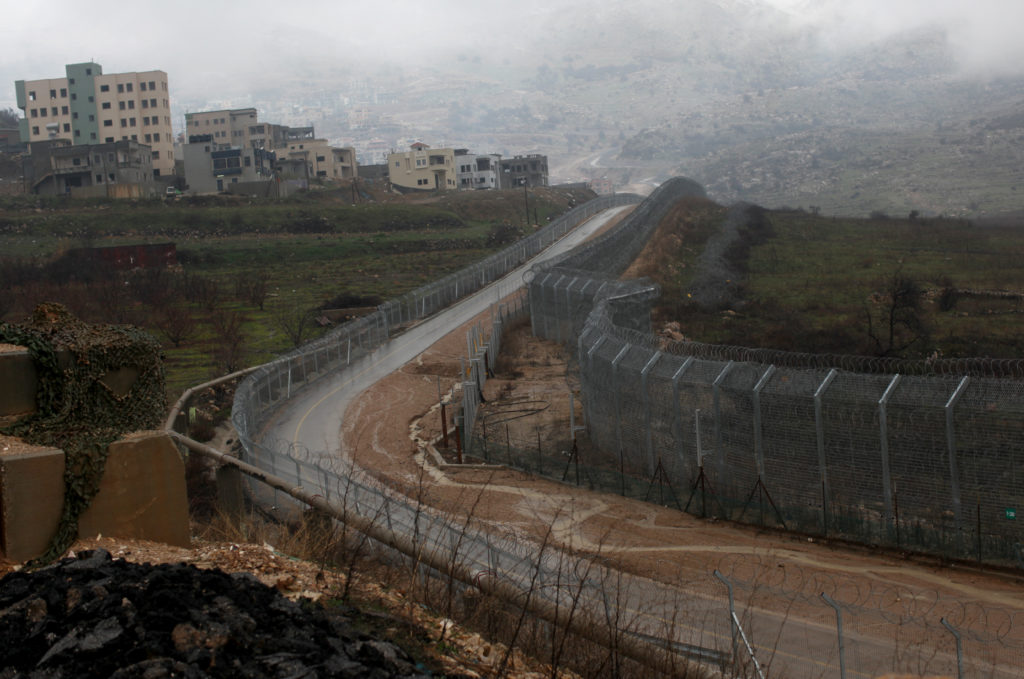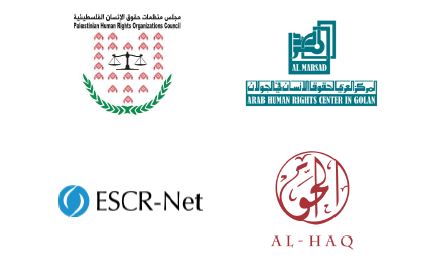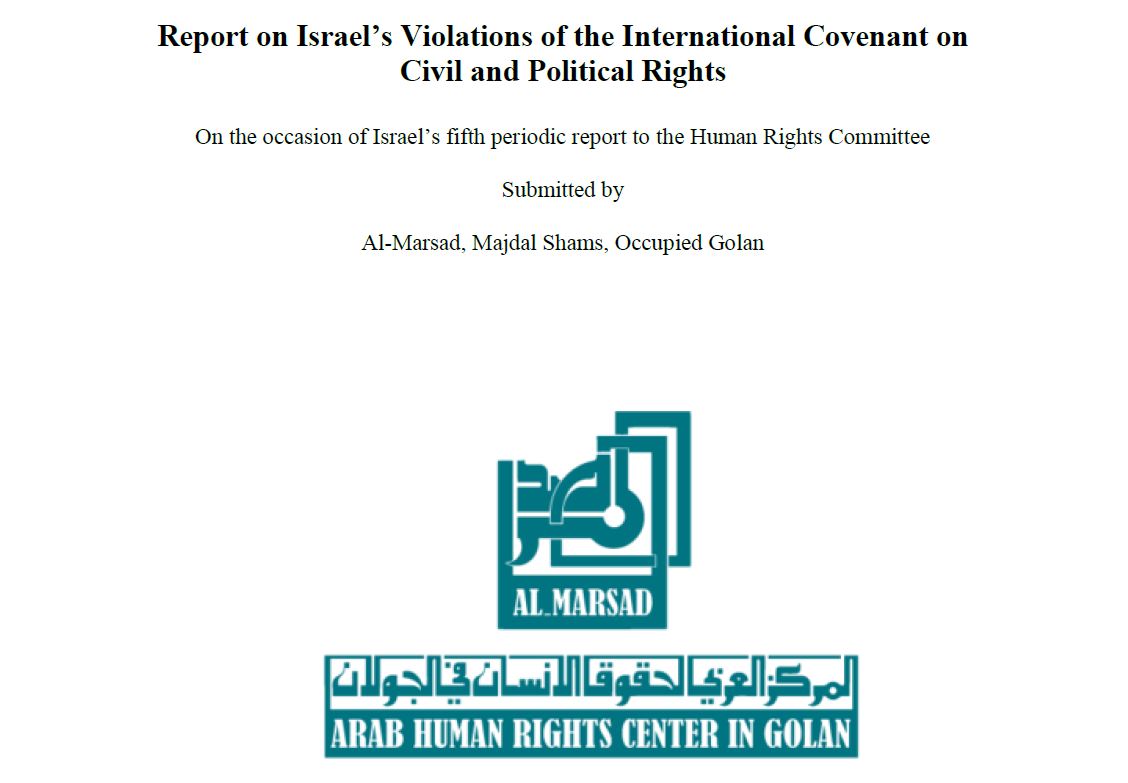
International travel companies profiting from the Israeli occupation of the Syrian Golan
International travel companies including Lonely Planet, Booking.com and Airbnb are misrepresenting the Occupied Syrian Golan as part of Israel and are promoting accommodation and tourism in illegal Israeli settlements.
The overwhelming majority of properties and activities in the Golan advertised on these websites are located in Israeli settlements - with no information provided to potential visitors that Israeli settlements are considered illegal under international law. To make matters worse, the Golan is also being misrepresented as part of Israel.
On the Booking.com website, search results for the Golan Heights categorise it as being in Israel and appear next to Israeli flags. Whilst descriptions of accommodation in settlements provide in-depth information about the availability of hot tubs, flat-screen TVs, packed lunches, complimentary flowers and homemade cookies, no information is provided to potential visitors that such properties are located in illegal Israeli settlements.
On Airbnb, search results for the Golan Heights list over 200 properties, the overwhelming majority of which are located in illegal Israeli settlements. No information is provided about their illegality under international law.
In addition to categorising the Golan as part of Israel on its website, Lonely Planet does not provide any contemporary information about the Israeli occupation on its website or in its guidebooks. For example, rather than explaining to potential visitors that Israeli settlements are considered illegal under international law, Lonely Planet instead describes them as ‘small, middle-class communities.’
In its guidebooks, Lonely Planet does provide this information for the Occupied West Bank – explicitly stating that it is under military occupation – which calls into question why it treats the Golan differently.
Instead, potential visitors to the Golan are encouraged to visit an ‘artisanal chocolate maker’ or ‘boutique winery’ – both based in illegal settlements – or go skiing on Mount Hermon – ‘Israel’s only ski station’. For overnight accommodation, visitors could stay in Neve Ativ, described by Lonely Planet as the ‘closest thing Israel has to a Swiss Alpine village’.
Lonely Planet kindly warns potential visitors that accommodation ‘prices rise in winter because of heating costs’. However, it fails to mention that Neve Ativ is an illegal Israeli settlement built on the ruins of Syrian village, Jubata al-Zeit. Jubata al-Zeit was demolished by the Israeli authorities to develop a ski resort following the occupation of the Golan.
Al-Marsad contacted Lonely Planet and Booking.com to express its concerns.
Lonely Planet’s explanation for its coverage of the Golan was completely inconsistent and it would not commit to making simple changes to address these issues. In response to its failure to provide basic information about the Israeli occupation of the Golan - such as information that Israeli settlements are illegal under international law - Lonely Planet said that it that had provided ‘relevant information in the introduction to the Golan Heights section to inform travellers’ needs but to give further detailed political or historical analysis wouldn't be appropriate for a travel guidebook’.
When Al-Marsad pointed out that this information is provided for the section of the guidebook on the Occupied Palestinian Territories – over several pages – Lonely Planet did not respond to this.
Despite persistent follow up, Booking.com failed to respond to Al-Marsad’s concerns altogether.
The United Nations Security Council recently reminded states to ‘distinguish, in their relevant dealings, between the territory of the State of Israel and the territories occupied since 1967.’ Despite this clear message that the Golan is not part of Israel, many international travel companies are failing to listen.
Further, given that Israeli settlements in the Golan are illegal under international human rights and humanitarian law, international travel companies that promote accommodation and tourism in illegal Israeli settlements for their own profit are – as a corollary – facilitating activities that violate the basic human rights of the Syrian population in the Golan.
It is time that international travel companies such as Lonely Planet, Booking.com and Airbnb recognise their responsibilities and end their complicity in the Israeli occupation of the Golan.
Background
During the 1967 Arab-Israeli War, Israel seized and occupied 1,230 km2 of the Golan (over two-thirds of the total land mass of the Golan) resulting in the forcible transfer or displacement of over 130,000 native Syrian inhabitants (95% of the population); the destruction of one city and 340 villages and farms; and the establishment of Israeli settlements.
In 1981, Israel enacted the Golan Heights Law which purported to annex the territory into the state of Israel, an illegal action widely condemned by the international community. Indeed, United Nations Security Council Resolution 497 (1981) was clear that: ‘[...] the Israeli decision to impose its laws, jurisdiction and administration in the occupied Syrian Golan Heights is null and void and without international legal effect’.
Today, there are at least 23,000 Israeli settlers in the Golan, living in 34 illegal settlements. Together with the Israeli military and authorities, they control 95% of the land. Meanwhile, the remaining native Syrian population is approximately 25,000 who live in five severely overcrowded villages located in the extreme north of the Golan, and who control just 5% of the land.
Since the Israeli occupation of the Golan, tourism has been a major part of the Israeli settlement economy. Indeed, the Golan’s natural beauty has long been promoted by the Israeli government and tourism industry that market it as ‘Northern Israel,’ even referring to it as the ‘Israeli Texas‘ due to its size. In 1968, just one year after the occupation, the Golan received 150,000 visitors, reaching approximately 1.5 million in 2005.
Activities promoted by the Israeli government and businesses include hiking, camping, biking, horse riding, wine tasting and fruit picking, among many others. Visitors can choose from a range of accommodation on travel websites that includes ‘rural guesthouses,’ boutique hotels, log cabins, bed and breakfasts and camping sites. Such activities and accommodation are almost all found in settlements or are owned by settlers.
ENDS
Al-Marsad is an independent, not-for-profit, legal human rights organisation – it is the only human rights organisation operating in the Occupied Syrian Golan. For additional information, please contact marsad@golan-marsad.org or researcher@golan-marsad.org
Related Posts




